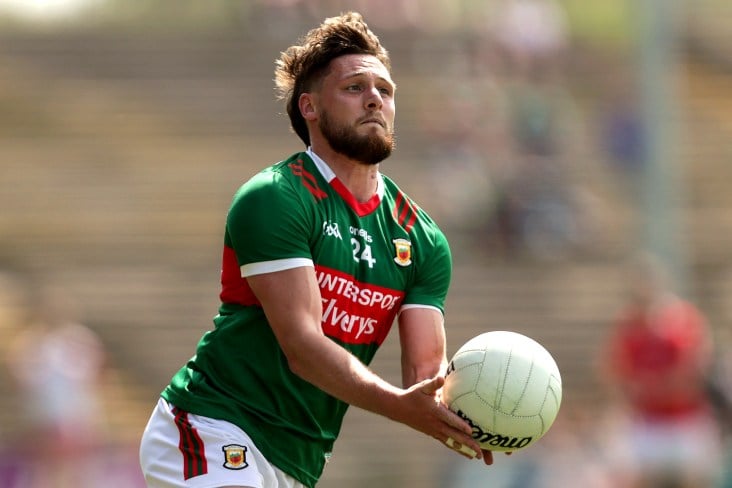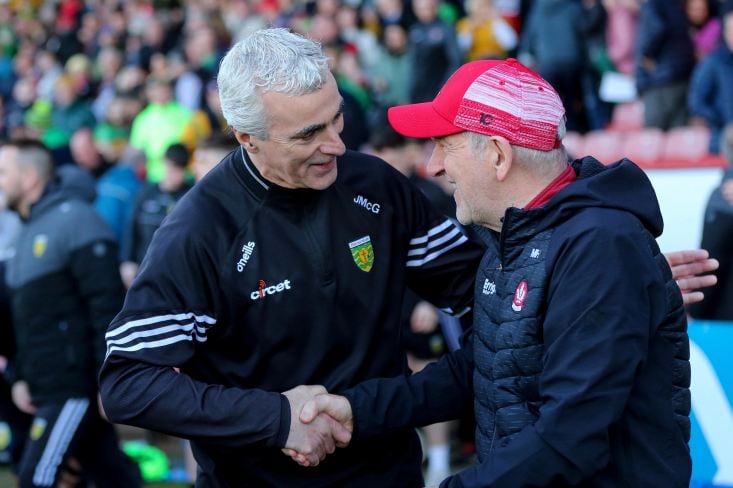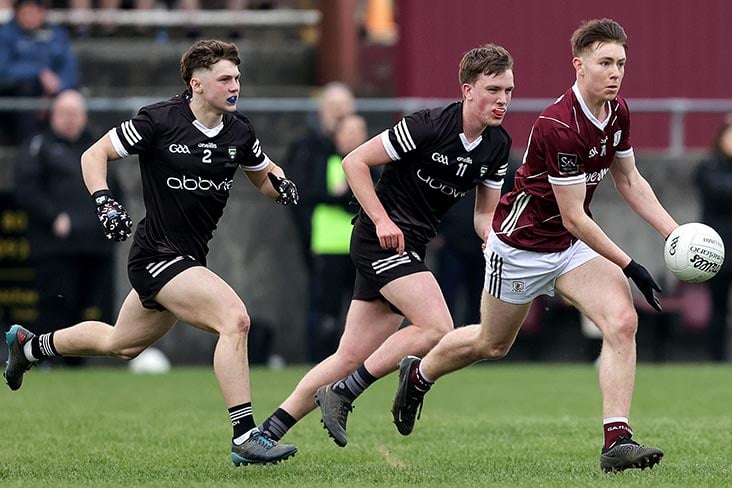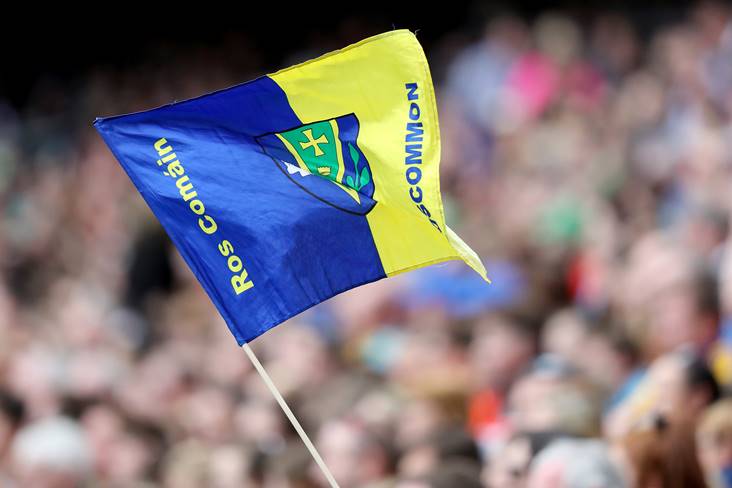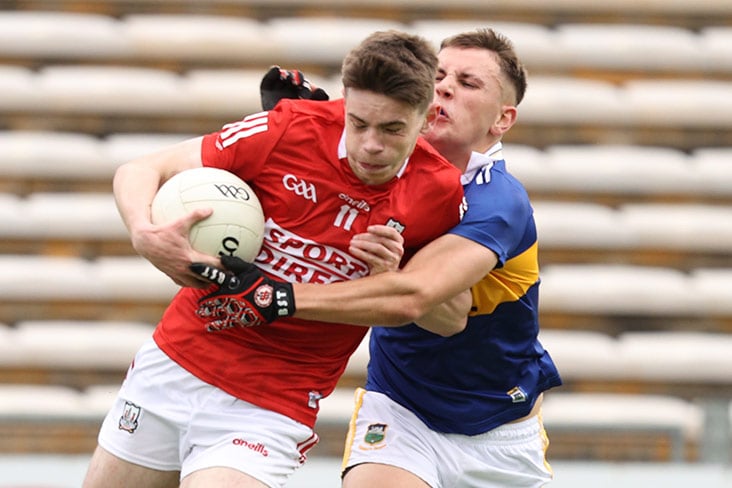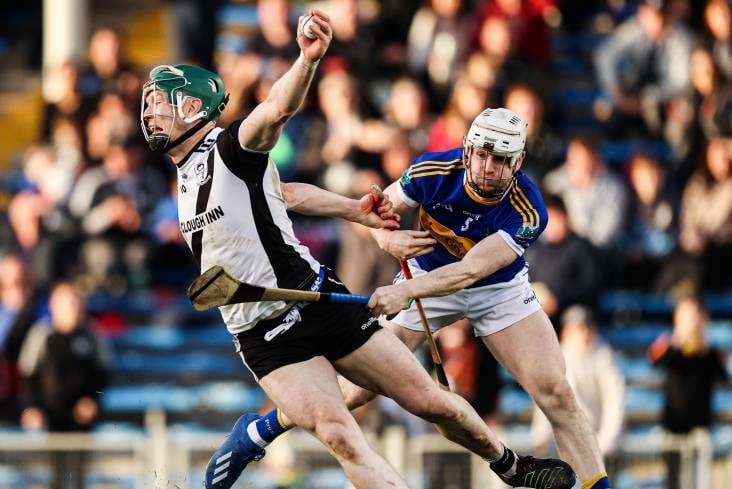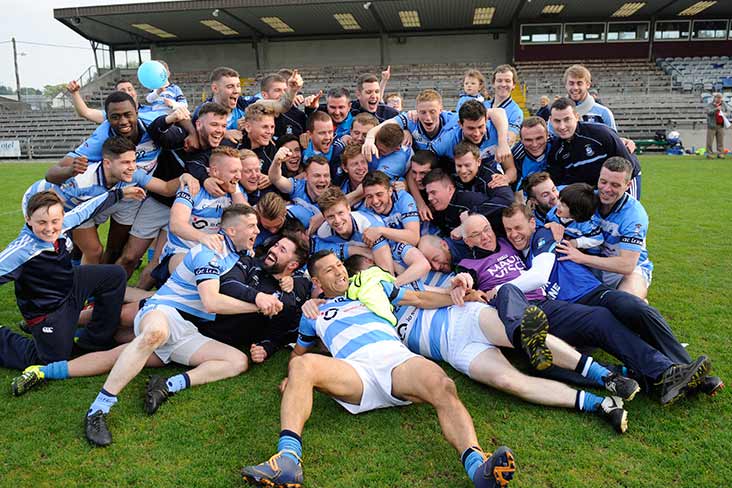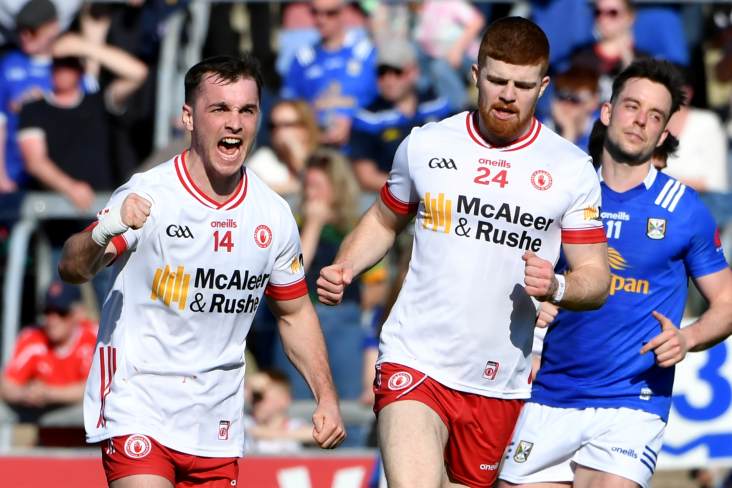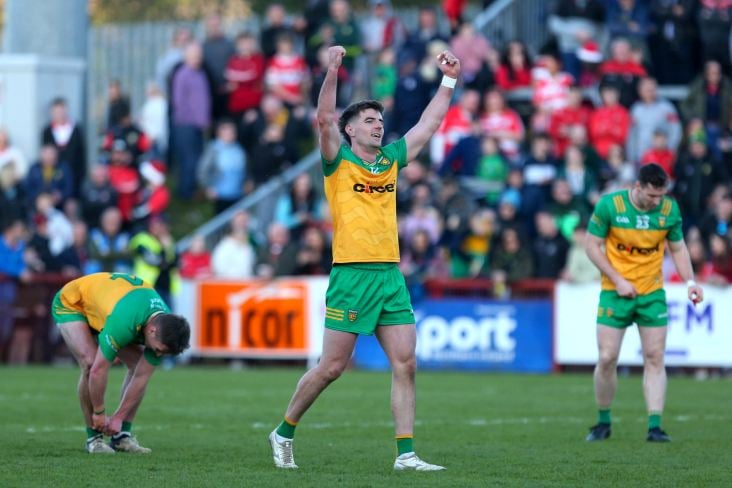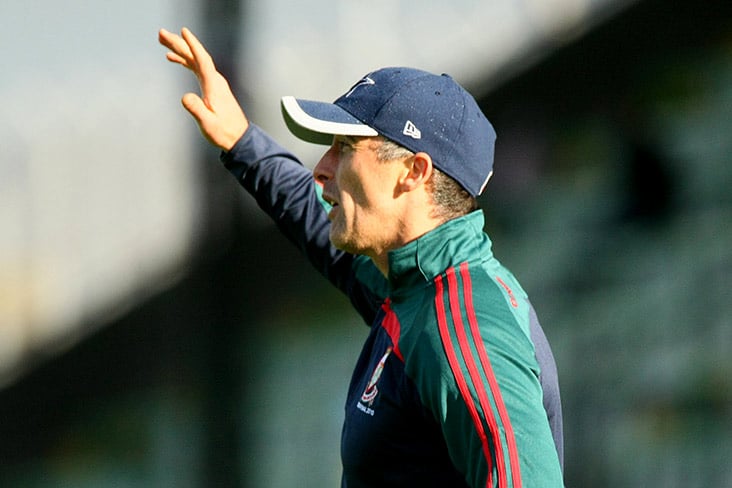Monaghan GAA a century ago - 'Blayney Faughs stoned out of Armagh in 1910
December 30, 2010With 2010 now drawing to a close it is interesting to have a look back at our county's GAA scene a century ago. The first decade of the twentieth century had really been a 'mixed affair' as far as the GAA was concerned - sometimes acrimonious and tempestuous and sometimes both boring and totally without interest. Only two Ulster titles came to the county in that decade - in 1906, when Monaghan defeated Antrim in the Ulster Final, and 1907 when they were accorded a walk-over by Derry.
On the domestic front the first three years were completely absent of any Championship activity, but Donaghmoyne finally put something in the 'records book' when they took the county title in 1904 and repeated the dose in 1906. Inniskeen came in with a win in 1905 while Castleblayney did likewise in 1907, but it was Carrickmacross who ended the decade in whirlwind fashion by taking the title for the final three years - 1908, 1909 and 1910.
As was a regular occurrence in those times, competitions were always very much in arrears, and 1910 was no exception, with several of the 1909 competitions being carried over into early 1910. The most important of these was the Monaghan Senior Football Championship Final of 1909, which was not played until April 1910, when Carrickmacross Emmets easily overcame Currin 'Sons of St. Patrick' by 2-12 to 1-1 at Cootehill. That Final was historic for two reasons - it was the only occasion ever that the Monaghan County Final was played outside the county and, secondly, it was the first and only time for Currin to appear in the Monaghan Senior Final.
Carrickmacross was then very much 'the team of the moment' with this panel of players - L. Jones, Jess Connolly, James Downey, Pat McKeown, Michael Keelan, N. Marray, Nig McCaffrey, J. Flood, J. Duffy, O. Sherry, J. Farrelly, J. Finnegan, Thomas Finnegan, J. Devine, J. O'Brien, J. McCabe, J. Slevin, J. Costello, J. Gartlan, Francis Cooney, James Marron, W. Flood, Johnnie Ward, W. Waldron and A. Murray.
At Ulster Convention held in Clones on 6th March, 1910, the chairman, Patrick Whelan of Newbliss, paid glowing tributes to the retiring Ulster Secretary, George Martin of Antrim, who had given such sterling service to the GAA in Ulster for several years previously. Whelan himself was re-elected as President. At the following Annual Congress it was announced that the GNR had withdrawn its restrictions on Sunday excursions, which came as great news to GAA followers all over Ulster. This had been achieved mainly through the tireless efforts of Patrick Whelan of Newbliss. 1910 also saw the disappearance of the 'points posts', which had featured in all GAA games up until then. From that on, the now familiar H style goalposts was adopted and remains in vogue to the present day.
Patrick Whelan had also previously donated a set of gold medals for a competition in aid of Ulster Council funds. The first Final of the Whelan Gold Medal Tournament was played in Clones with Cavan defeating Antrim by 2-3 to 0-4, a game that had been refereed by Willie McGrath of Castleblayney. Whelan had named the trophy for the competition - the 'Croke Cup', and gradually the competition became generally known in all four provinces as the Croke Cup.
This Croke Cup and the Ulster Gold Medals tournament later became separate competitions apparently, and there is much confusion in the records of the time as to which was which. The Croke Cup appears to have been awarded for the Provincial Championship for a period, which explains Monaghan's clash with Dublin at Dundalk on 15th March 1908. For that particular game, the Monaghan Harps club had been nominated to represent Co. Monaghan, much to the displeasure of Castleblayney, Carrickmacross and Killeevan. Then it became a separate competition and, later still, a knock-out competition between the defeated provincial finalists.
The 1910 Ulster SFC turned into a bit of a shambles - Donegal did not compete, Down withdrew when their fixture with Antrim clashed with their own county final, and Derry gave a walk-over to Tyrone. The Cavan v Fermanagh game was abandoned when the ball burst. Monaghan and Armagh played a draw at Castleblayney, but Monaghan won the replay, 1-6 to 0-2, at Crossmaglen. Cavan beat Tyrone in the first semi-final and then Monaghan and Antrim met in the second semi-final at Armagh on 4th Sept., which Antrim won by 1-4 to 1-3, a result that did not go down very well with one particular Monaghan supporter and scribe, who, under the pen-name 'Old Timer' reported in the 'Dundalk Democrat' condemning 'the soccer tactics of Antrim as against the grand old Gaelic game of Monaghan'.
The report by 'Old Timer' makes remarkable reading and was a far cry from the match-reporting style of the modern era. The writer was obviously something of a poet with a rather 'romantic' mind. His opening paragraph, which contains some really flowery language, reads:
'On Sunday last the plucky Carrick Emmets, with buoyant spirits and the undaunting cheerfulness that always characterized the plucky sons of Farney, travelled with an enthusiastic host-age, as brave a set of Irishmen as is found within the four shores of Eirinn - travelled for the first time to Armagh's Primatial City. Grand old Armagh was the objecture of these Gaels, and on a green sward 'neath the tapering spires of the glorious St. Patrick's Cathedral, they met their brother Gaels from the shadow of Cave Hill and from the stoned Glens of Antrim'.
Monaghan had to guarantee 300 passengers to get the GNR to provide a special train from Carrickmacross, but only 170 boarded the train there, none at all at Essexford, Culloville or Inniskeen, only a dozen at Castleblayney, but 'a splendid muster' at Ballybay. A mere handful joined at Clones and Monaghan, so the excursion was run at a loss. Monaghan, playing in the green-and-gold of Carrick, had to field without their star player and centre forward, Mickey Keelan, (bereaved by the death of his father a few days previously), and goalkeeper Costello (who travelled, but was unable to play because of an injury). They lined out: James Downey, J. Slevin, Johnny Ward, Nig McCaffrey, Tom Finnegan, P. Finnegan, J. Devine, J. O'Brien, Willie Waldron, Joe (Jess) Connolly, Pat McKeown and J. Gartlan (all Carrickmacross), Jem Farrelly and McBride (Magheracloone Mitchells), Lenagh (gls.) and McCabe (Aughnamullen Sarsfields) and J. McDonagh (Monaghan Harps).
Antrim started in whirlwind fashion and scored two points in the space of two minutes shortly after the throw-in, but Monaghan fought back and two points from Joe Connolly levelled matters and finished the low-scoring first half on a score-line of 0-2 each. A Monaghan goal by Willie Waldron midway through the second half put Monaghan in front, but when Antrim scrambled a similar score only minutes later all hell broke loose and the game was held up for over ten minutes. Antrim had two further points to one for Monaghan, to leave the final tally - Antrim 1-4, Monaghan 1-3.
'Old Timer's 'Democrat', criticism was strongly condemned by fellow Monaghan-man, Patrick Whelan, at the subsequent meeting of the Ulster Council. Monaghan objected to Antrim on a number of grounds including - (1) 'a good crop of hay could be taken off the field' (lost), (2) 'that Antrim had included a professional boxer, W. Manning, who had fought under IAAA rules' (lost), and (3) 'encroachment of spectators' (upheld), but the referee, Mr. Charles Magee from Ballaney, Dromore, severely castigated the Monaghan team thus - 'The Monaghan team indulged in rough play during stages of the game, which seemed to encourage their supporters to bad language and rowdy conduct'.
A replay was ordered and the game was re-fixed for Clones on 16th October but Antrim lodged a counter-objection, which was also upheld. Eventually the game was played at Dundalk, but Antrim won again, this time by 1-2 to 0-3. Monaghan lined out: James Downey (capt), J. Slevin, Michael Keelan, Nig McCaffrey, Thomas Finnegan, P. Finnegan, J. Devine, J. O'Brien, Johnnie Ward, W. Waldron, Jess Connolly, Pat McKeown, P. Gartlan (all Carrickmacross), J. McDonagh (Monaghan Harps), McBride and Jem Farrelly (Magheracloone), Lenagh (gls.) and McCabe (Aughnamullen).
Antrim at that stage was the dominant force in Ulster football, winning six Ulster titles in-a-row and becoming the first Ulster county to reach the All-Ireland Final (1911), and defeating Kerry in the semi-final of the 1912 Championship - probably their finest ever achievement. Antrim's glory was shared by all the other Ulster counties and northern hopes of finally breaking the All-Ireland Final barrier began to rise. The Ulster Convention had also been held in Clones in 1910, as was the Ulster Final of that year but, in which, Monaghan did not figure.
An incident in Oct. 1910 attracted nationwide attention. Castleblayney Faughs players and supporters were attacked at Newtownhamilton on their way home from a game in Camlough and several of their party were injured. Con Short, in his excellent history 'The Ulster GAA Story, 1884-1984', (p.54), describes the situation thus:
'Castleblayney Faughs were coming from a challenge game with Camlough Shane O'Neills, Co. Armagh. They were attacked with rocks and stones just outside Newtownhamilton, Co. Armagh, and were lucky to escape with a few bruises. Everybody knew who the assailants were but there were no prosecutions. A writer in the press declared that 'it seemed to be a greater crime with some people to play football on Sunday than to attack innocent, unarmed civilians with rocks and stones'.
Earlier on the same page, Con Short describes yet another incident explaining the political problems which the GAA had to face in those years, in this case 1910 again:
'After a game in Cootehill, large rocks were placed on the roads near Newbliss to try to seriously injure the members of the Monaghan team returning from a game. The RIC were supposed to be making inquiries about it, but that was all that was done.'
Carrickmacross Emmets, with two successive Monaghan titles under their belts, 1908 and 1909, now set out to make it a three-in-a-row, and duly did so in very impressive fashion. This time they defeated Aughnamullen in the semi-final at Bawn, which was really the 'South Final', and then went on to meet Monaghan Harps in the Final. This turned out to be a very low scoring game with the Emmets retaining their title on a final score-line of Carrickmacross 0-3, Monaghan Harps 0-0.
They might even have gone on to record a truly record breaking run of 'seven-in-a-row' of Monaghan titles but, unfortunately for them, there was no competition in either 1911 or 1912. The 1911 competition fell through because of an internal dispute, while the 1912 Championship, although started, was never completed. However, the Carrickmacross men were not to be denied and came back to win two more titles in 1913 and 1914. In the 1913 Final they got a walk-over from Ture and, in the 1914 Final, they defeated Magherarney by 2-0 to 0-0 at Rockmullan, near Ballybay.
In the 1910 Ulster Senior Hurling Championship, Antrim defeated Monaghan by 4-16 to 2-3 at Castleblayney in April, on the very same day that the 1909 County Senior Football Championship Final was being played at Cootehill. Monaghan hurlers lined out (17 a-side): Quigley (goals), Freeman, McEneaney and Smith (backs), McKenna and McDonald (halves), McPhillips, Kiernan and Fitzpatrick (three-quarters), SJ Magill (centre), P.Hughes, Nesbitt, Connolly, Francis Macklin (captain) and Cash (forwards), Donnelly and JF Hughes (advance forwards).
It is interesting to note the names of some clubs and venues then in existence and which have rarely been mentioned since. This can be gleaned from some of the fixture lists, e.g. - Sept. 11th at Castleblayney: Essexford v Ballybay (Monaghan Junior League); Sept. 11th at Rosslea: Monaghan v Greenan's Cross (hurling); Sept. 18th at Ballytrain: Beagh v Castleblayney; and Young Irelands v Essexford (Monaghan Junior League). A League game arranged for Shantonagh in September between Essexford Rovers and Beagh Volunteers failed to materialise when Essexford Rovers failed to turn up and Beagh Volunteers turned up an hour-and-a-half late. Both teams were later thrown out of the competition by Monaghan County Board.
We may have come through occasional bad times since then, and even at times hit rock bottom, but one would have to admit that we have come a long, long way between 1910 and the year now drawing to a close, 2010. Tweet
